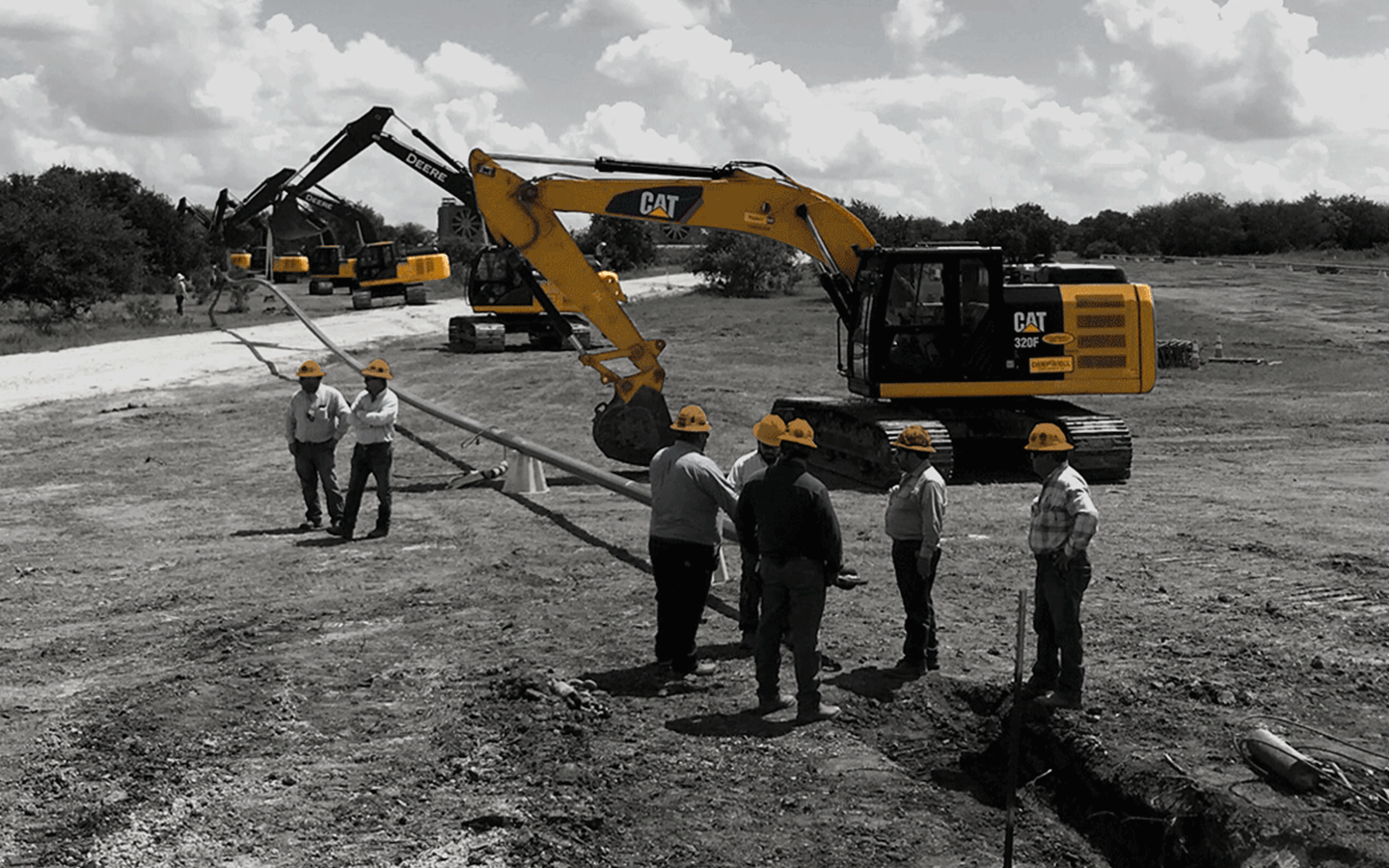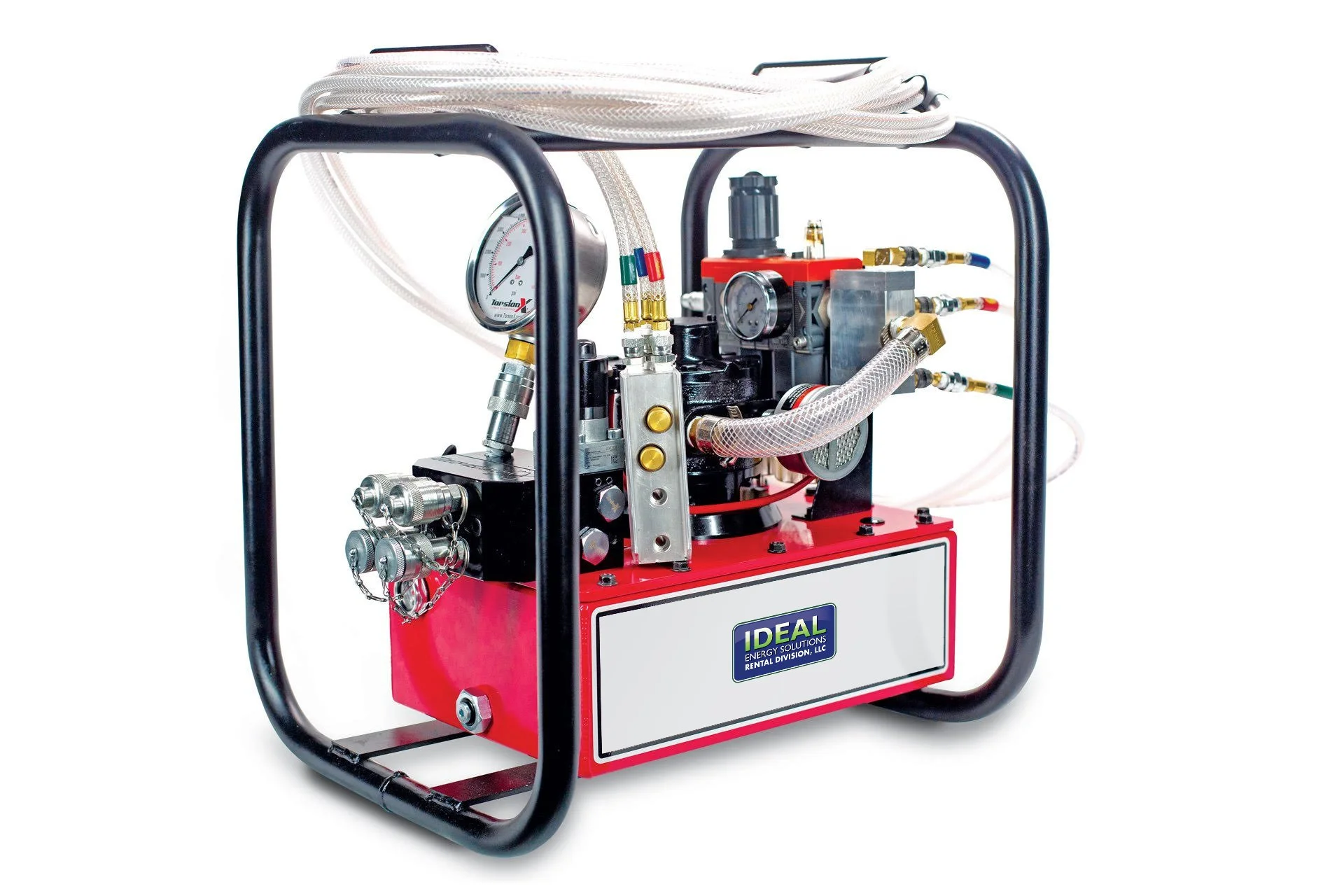Why experts recommend working with Superior Oilfield Rentals in today’s energy industry
A Comprehensive Overview to the Various Sorts Of Oil Field Equipment and Pipeline Equipment Available
The oil and gas sector counts greatly on customized tools for effective extraction and transport. Different types of machinery, from piercing rigs to storage containers, play important functions in this intricate procedure. Each item of devices serves unique functions that add to total functional success. Recognizing these elements is essential for anyone associated with the sector. As the market progresses, so too do the innovations that support it. What developments are on the horizon?

Drilling Rigs: The Foundation of Oil Expedition
Drilling rigs act as the crucial machinery in the domain name of oil expedition, enabling companies to accessibility hydrocarbon gets hidden deep under the Planet's surface. These rigs can be found in different kinds, including land rigs, offshore rigs, and mobile units, each created to run in particular atmospheres. Geared up with advanced innovation, piercing rigs can permeate geological developments with precision, ensuring efficient source removal. The structural stability and functional capacities of these rigs are important, as they need to withstand severe conditions and significant stress. Additionally, the choice of a drilling gear affects the general job price and timeline, making it a crucial factor to consider for oil business looking for to maximize their expedition efforts and make the most of performance in their procedures.
Pumps: Vital for Fluid Motion
In the oil removal procedure, the duty of pumps is considerable, helping with the movement of fluids throughout different phases of production. Pumps are crucial for moving unrefined oil, water, and various other fluids from underground reservoirs to the surface and after that via pipes to refineries. They come in different types, including centrifugal, positive displacement, and submersible pumps, each offering particular functions based on the fluid qualities and functional needs. Centrifugal pumps are commonly used for their effectiveness in high-flow applications, while positive displacement pumps stand out in dealing with thick fluids. The choice of pump impacts general efficiency, functional security, and upkeep costs. Correct option and upkeep of pumps are essential for enhancing manufacturing and lessening downtime in oil field procedures.
Shutoffs: Controlling Circulation and Pressure

Valves play a vital duty in managing the flow and stress of liquids within oil fields and pipelines. Different kinds of valves offer distinctive applications, each developed to meet specific features basic for efficient operation - Superior Rentals midland. Recognizing the characteristics and uses of these shutoffs is essential for optimizing system performance and safety and security
Types of Valves
Necessary components in oil area operations, valves play a crucial role in controlling the flow and pressure of fluids within pipes and tools. Various types of shutoffs are utilized to meet the diverse demands of oil and gas manufacturing. Common types include entrance valves, which give a straight-line circulation and minimal pressure decrease; world valves, understood for their strangling abilities; and round shutoffs, identified for their fast on/off control. Furthermore, check valves avoid backflow, while butterfly valves supply a light-weight option for managing circulation. Each shutoff kind is created with certain products and arrangements to hold up against the extreme conditions commonly discovered in oil fields, making sure reliability and efficiency in procedures. Recognizing these kinds is vital for efficient system monitoring.
Valve Applications and Functions
While numerous kinds of valves serve distinctive purposes, their key applications revolve around regulating flow and stress within oil and gas systems. Shutoffs such as gate, world, and ball valves manage fluid activity, ensuring peak efficiency and security. Gate shutoffs are frequently used for on/off control, giving very little circulation resistance. World valves, on the other hand, deal specific flow regulation, making them ideal for strangling applications. Ball shutoffs are preferred for their quick operation and tight securing abilities. On top of that, pressure alleviation shutoffs are vital for preventing system overpressure, protecting tools honesty. In general, the appropriate option and application of valves enhance operational efficiency, making sure the trusted transport of oil and gas with pipes and processing facilities.
Compressors: Enhancing Gas Transportation
Compressors play an important duty in the efficient transportation of all-natural gas, ensuring that it moves efficiently through pipelines over cross countries. These devices enhance the pressure of natural gas, enabling it to get rid of rubbing and elevation adjustments within the pipeline system. Additionally, compressors assist in the harmonizing of supply and need, suiting fluctuations in consumption and production rates. Various kinds of compressors are employed in the industry, including centrifugal, reciprocating, and rotary screw compressors, each offering distinct advantages based upon the operational demands. Normal maintenance of these compressors is vital to optimize performance and decrease downtime, ultimately contributing to a trustworthy gas transport network. Their critical function underscores the significance of compressors in the general oil and gas facilities.
Storage Tanks: Safe and Effective Fluid Management
Effective transportation of all-natural gas relies on various support group, one of which is the proper monitoring of storage containers. These containers play a necessary function in securely having fluids, ensuring that functional effectiveness is maintained while decreasing environmental risks. Created from long lasting materials, they are made to hold up against high stress and destructive elements. Appropriately sized and strategically situated, storage containers facilitate the smooth circulation of gas and various other liquids, stopping bottlenecks in supply chains. Normal maintenance and tracking are crucial to spot leakages or structural problems, advertising security and compliance with governing requirements. Eventually, the effective monitoring of storage containers is essential for the total stability and integrity of the oil and gas market's liquid handling systems.
Pipeline Systems: Facilities for Transportation
Pipeline systems act as the foundation of the oil and gas sector, assisting in the effective transport of hydrocarbons over vast ranges. These systems include different elements, consisting of pipes, shutoffs, pumps, and compressors, all thoroughly created to ensure seamless flow. The materials used in pipeline construction, often steel or high-density polyethylene, are selected for resilience and resistance to rust. Pipeline networks can span across land and water, linking production websites to refineries and distribution centers. Additionally, progressed technology allows real-time surveillance of circulation rates and pressure levels, improving functional effectiveness. The strategic positioning of these pipes minimizes ecological impact while making the most of source availability, consequently playing a vital role in conference power needs worldwide.
Safety And Security Equipment: Making Sure Employee and Environmental Protection
The procedure of pipeline systems, while essential for energy transportation, additionally presents substantial safety obstacles for employees and the setting. Security equipment plays a substantial duty in reducing these risks. Individual protective equipment (PPE) such as headgears, gloves, and non-slip shoes safeguards employees from physical threats. In addition, gas detection systems monitor for leaks, making sure that dangerous substances do not posture a danger to personnel or the bordering environment. Emergency situation closure systems are critical for swiftly halting procedures throughout a crisis, stopping potential disasters. Spill control materials, consisting of absorbents and barriers, are fundamental for reducing ecological impact. On the whole, buying comprehensive security tools is vital for maintaining functional honesty and securing both workers and the setting in the oil and gas market.

Frequently Asked Questions
How Do I Pick the Right Oil Field Equipment for My Project?
Choosing the right oil area tools includes examining project specifications, spending plan restraints, and functional requirements. Consider variables such as devices dependability, compatibility with existing systems, and the provider's reputation to assure peak efficiency and security.
What Are the Maintenance Demands for Oil Field Equipment?
Upkeep requirements for oil area devices include normal evaluations, lubrication, and timely repair services. Operators ought to also abide by maker guidelines, screen performance metrics, and warranty compliance with safety and security guidelines to boost long life and performance.

Exactly How Can I Guarantee Conformity With Environmental Regulations?
To assure compliance with environmental read more guidelines, firms must conduct regular audits, implement finest practices, spend in training, preserve correct documentation, and stay updated on legislation (Superior Rentals fusion machines). Partnership with environmental companies can additionally boost adherence to policies
What Is the Ordinary Lifespan of Pipeline Equipment?
The typical lifespan of pipeline tools generally varies from 20 to 50 years, depending upon elements such as worldly quality, environmental problems, and upkeep methods. Routine evaluations can considerably affect durability and functional effectiveness.
How Do I Safely Transfer Oil Field Equipment to Remote Locations?
Transferring oil area devices to remote areas needs careful preparation, including course evaluation, securing licenses, using ideal cars, and ensuring safety and security procedures are adhered to. Appropriate training and interaction among staffs are necessary for successful transport.